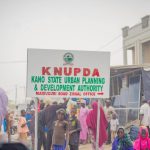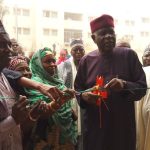The Public Complaints Commission (PCC) in Kano State said on Thursday that it resolved 767 of the 4,652 complaints it received between June and October as part of efforts to strengthen administrative justice and accountability in the state.
Kano State Commissioner of the PCC, Ibrahim Zakari-Sarina, disclosed this while briefing journalists in Kano during activities marking the 50th anniversary of the commission, established in 1975 as Nigeria’s foremost ombudsman.
Zakari-Sarina said the resolved cases were settled through investigation, mediation, and administrative intervention. The complaints ranged from denial of entitlements, wrongful termination, and abuse of power to non-payment of salaries, land disputes, unfair utility billing, and administrative negligence.
“For five decades, the PCC has remained a trusted platform for Nigerians to seek redress against injustice, maladministration, and abuse of power by both public and private institutions,” he said.
The commissioner noted that the Kano office had handled thousands of cases involving individuals, communities, and organisations, with many resolved amicably through fair recommendations and administrative justice.
He said the commission had expanded its outreach to rural communities, civil society groups, and the informal sector to ensure access to justice regardless of social or geographic status.
Zakari-Sarina added that the PCC was adopting digital complaint management systems and pursuing collaborations with other agencies to enhance transparency and efficiency.
“Today’s celebration is not only about reflecting on the past 50 years but also about renewing our commitment for the next 50. The world is changing, and so must we,” he said.
He urged citizens to take advantage of the PCC’s free services by reporting cases of injustice and abuse of authority. The commission operates five zonal offices across Kano — in Gezawa, Bichi, Tudun Wada, Gaya, and Gwarzo — to make its services more accessible.
“As we commemorate this milestone, let us remember that the pursuit of justice is a shared responsibility,” Zakari-Sarina said. “Together, we can build a Nigeria where every citizen lives with dignity, justice, and peace.”
NAN






